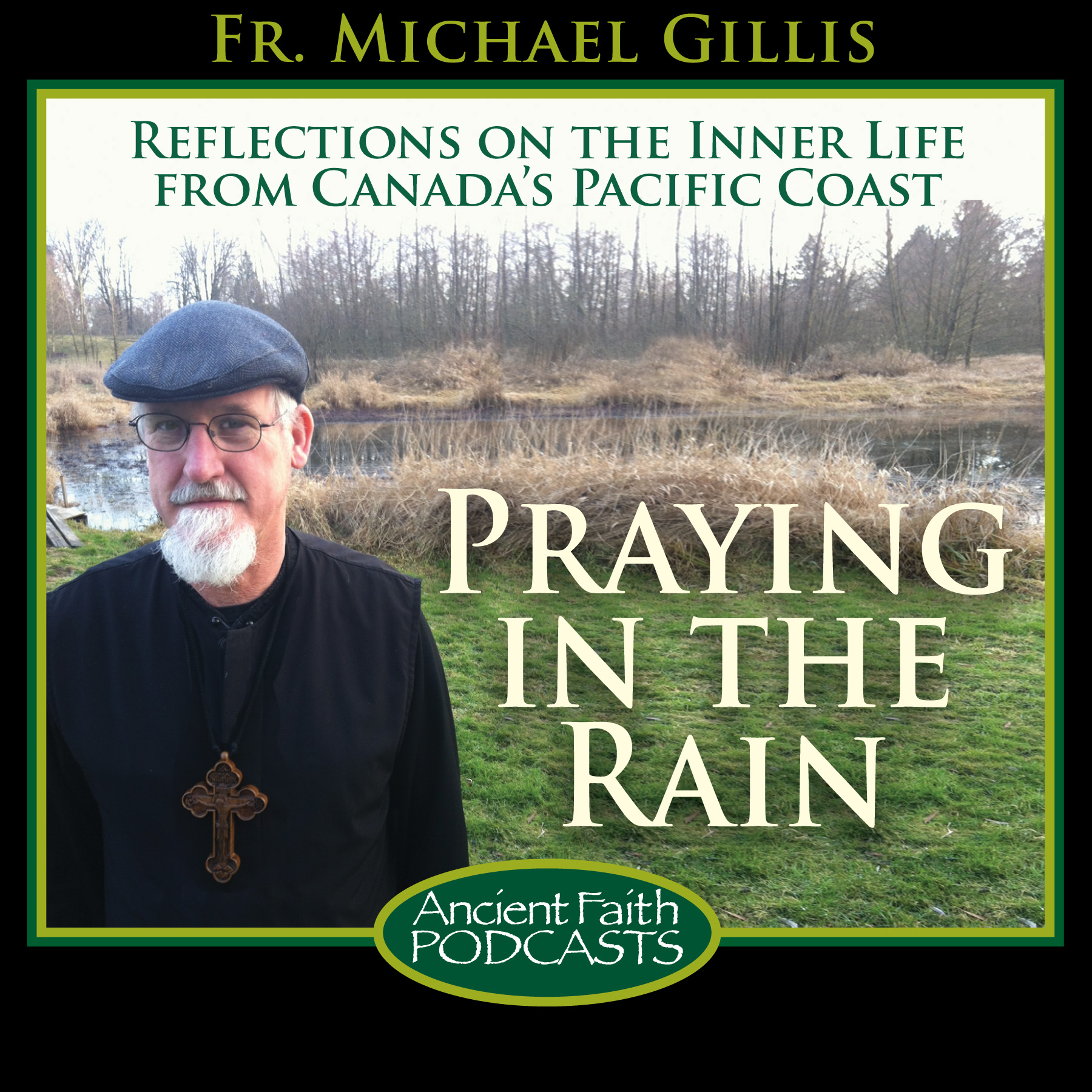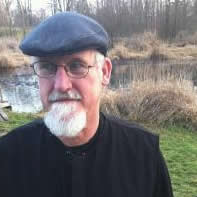Praying in the Rain
On Closed Communion
The following is my response to one of my catechumens to the question of why the Orthodox Church practices a closed communion: Basically, Communion creates and defines our community, our being one with one another in Christ—i.e. eating of the one bread and of the one cup. Historically, some people/groups separated themselves from the communion of the Church through heresies or immorality or aligning themselves with a heretical bishop. Therefore, they are not in communion, not part of the one Church—at least as far as we can identify the Church as a concrete divine/human institution (not to be confused with “all who will be saved in heaven,” which only God knows). Anyone can return to communion with the one Church through repentance and Chrismation (or whatever specific rite the bishop decides). We do not have open communion because we don’t want to say people are part of the Church who are not part of the Church—or at least whom we can’t identify as part of the Church. This would be dangerous for them (eating and drinking condemnation to themselves) and dangerous for us (through Communion we become one with one another.
Friday, April 5, 2019
Listen now DownloadSupport podcasts like this and more!
Donate NowTranscript
March 27, 2018, 5 a.m.
The following is my response to one of my catechumens to the question of why the Orthodox Church practices a closed communion.
Basically, Communion creates and defines our community, our being one with one another in Christ—i.e. eating of the one bread and of the one cup. Historically, some people/groups separated themselves from the communion of the Church through heresies or immorality or aligning themselves with a heretical bishop. Therefore, they are not in communion, not part of the one Church—at least as far as we can identify the Church as a concrete divine/human institution (not to be confused with “all who will be saved in heaven,” which only God knows). Anyone can return to communion with the one Church through repentance and Chrismation (or whatever specific rite the bishop decides). We do not have open communion because we don’t want to say people are part of the Church who are not part of the Church—or at least whom we can’t identify as part of the Church. This would be dangerous for them (eating and drinking condemnation to themselves) and dangerous for us (through Communion we become one with one another—c.f. 1 Corinthians 6:15-20 and 11:27-29).
Certainly, one way to solve the problem of who should receive Holy Communion in the Orthodox Church would be to let each person decide individually whether they are or are not part of the One Church. That’s basically the open communion model. It’s very modern and individualistic and ‘open’ to all kinds of abuse and intentional or unintentional deception. The Orthodox Church has taken the closed communion route, which may seem to some nowadays to be extreme, but that may be because they think this is a claim to know who is or isn’t a real Christian. That is not what our practice of closed communion is saying. Rather, we are saying that we know what the Church is (historically, theologically, institutionally), but we don’t know who those outside this historical, theological, institutional reality are. Those who would like to join the Orthodox Church are welcome, but there is a process. Those Christians (and we don’t deny that they are Christians) who don’t want to join the Orthodox Church are not condemned, but neither are they communed because we don’t know who they are.
The conflict for many also seems to come from very individualistic assumptions: “I feel like I am a real Christian, therefore I should be communed as part of the Orthodox Church.” The Orthodox Church, on the other hand, says that regardless of how you feel individually about your relationship with God, your communion (the Christian community you are a part of) determines your relationship to the Orthodox Church. This is a radically different way of thinking from what many Protestants, especially Evangelicals, are used to. Membership in some Protestant communions is so individualistic that being a part of the communion depends almost completely on whether or not a person feels he or she is a part. When my wife and I were in college, we attended a Baptist church near the campus. When I asked the pastor what I had to do to become a member, he asked me two questions: 1) Have you accepted Jesus into your heart? and 2) Do you feel like you are a member. Answering yes to both of these apparently made me a member.
From the perspective of the Orthodox Church, someone may indeed be a saint in the eyes of God, but if they are a part of a different Christian communion (Anglican, Roman Catholic, Baptist, whatever), they are not part of the historical, theological, divine/human institution identified as the Church—Holy, Catholic, and Apostolic, at least not as far as the Orthodox Church is concerned, as far as the Orthodox Church can identify them. What are they then? We don’t know; God knows. And it is the responsibility before God of whatever Christian communion to which they do belong to care for them, communing them, teaching them, disciplining and training them, etc. We don’t condemn anyone or any group: God is the judge of all. But neither do we say all self-identified Christians are basically the same and therefore should be communed in the Orthodox Church. No, we believe theology and morality matter, and as far as we are able, given the canons of the Church and under the guidance of our bishops, we do our best to identify those who are Orthodox Christians in good standing (and therefore to be communed in the Orthodox Church) from those whom we don’t quite know who they are.
I find that it helps to think of this historically. Until very recently, and for almost all Christian communions, the unity of the Church was determined by the bishops. If Bishop “A” and Bishop “B” were in communion, then the people who were in flocks “A” and “B” were in communion. If Bishop “A” and Bishop “B” were not in communion, then their respective flocks were not in communion. For most of history this was the common practice, and there was very little confusion: mostly, I think, because travel was very difficult and the various Christian communions, especially after the Reformation, put a great deal of effort into defining exactly how and why they were different from one another. However, with the rise of individualism, the massive shifts of people groups in the twentieth century, and the ecumenical perspectives that have become popular over the past sixty years or so, closed communion has come to be seen as somehow uncharitable—even though it was the standard practice in almost all Christian communions for most of history. By “ecumenical perspectives” I mean that it is nowadays becoming more and more common for Christian communions to focus on what they have in common, especially in the face of the growing secularism of western culture, rather than focusing on how they differ theologically or morally.
Personally, I think it is a good thing for the various Christian communions to talk to one another and understand how much they do indeed have in common and to cooperate with one another wherever possible. But at the same time it is essential that we be honest about theological and moral differences. Yes, through talking to one another it is possible to realize that matters which were once thought to be significant differences, are in truth actually just misunderstandings. However the same dialogue also highlights actual theological or moral differences. And these differences are not insignificant, even though some points may seem insignificant to those untrained in theology or who have been corrupted by the very secular morality of our age (which, I think includes almost all of us, including me). But this is why we have bishops and Church canons. It is the responsibility and spiritual gift of the bishops, guided by the Church canons, and eventually confirmed by the people (all of which is the work of the Holy Spirit), to decide what or who is and isn’t part of the Orthodox Church. It’s a process. It takes time. And in the meantime we work with what we have, within the guidelines our bishops have given us, not condemning anyone, but also not going renegade thinking we on our own know better than our bishops who should or shouldn’t be counted among the Orthodox faithful, who should or shouldn’t be communed in the Holy Orthodox Church.
One might reply, “well aren’t there some Orthodox Christians who receive Holy Communion but who do not accept all aspects of Orthodox theology or who regularly participate in behaviours considered immoral by the Orthodox Church? Yes, unfortunately, this does sometimes happen, either because of ignorance or (and this is a real tragedy) because of defiance. However, before we receive Holy Communion we always confess the Creed, affirming what we Orthodox Christians believe. If someone is confessing the Creed falsely, either through ignorance or defiance, there is very little we can do about it except continue to teach our people. Similarly, the medicine of Holy Confession exists to help those who have failed to live according to the moral teachings of the Church. In some Orthodox Churches, confession before every communing of the Holy Body and Blood of Christ is required, in others regular confession is required, but not necessarily before every communing. The canonical minimum, as I understand it, is to confess and commune at least once a year. But again, there is little a priest can do about dissimulation, the hiding of one’s thoughts and feelings, except to continue teaching and loving and serving his community as best he can—despite the apparent, or unapparent, tares among the wheat. However, the fact that one cannot be 100% certain about the theology and morality of everyone in the parish does not mean that we do not do the best we can. It does not mean that faith and morality do not matter. We all see through a glass darkly, as St. Paul said. Only God sees everything. But that doesn’t mean that we don’t see anything. Based on what we do see and know, as limited as that is, we do our best to commune only Orthodox Christians in good standing.
Again, and I can’t repeat this enough, this not a condemnation of anyone. God alone knows His own. However, this closed communion approach is how the Orthodox Church deals with those who are not identified as Orthodox Christians, and it is the approach that has been taken by most Christian communions throughout most of history. It’s nothing new. It’s not mean spirited. It’s just how the Church does things.
I expect on the Last Day there will be many “who come from the East and the West,” who were never members of the Orthodox Church, and who are standing much closer to Jesus than many Orthodox Christians. However until that day we must do the best we can with what we have, guided by the bishops who themselves are guided by canons, knowing that only God knows everything.
About
In “Praying in the Rain,” Fr. Michael Gillis reflects on the inner life of Orthodox Christians. Drawing on the wisdom of both ancient and contemporary Church Fathers and Mothers, Fr. Michael ponders the struggles, the ironies, and the disciplines of the spiritual life. Written versions of many of Fr. Michael’s reflections can be found at his blog site.
Contributors

 Fr. Michael Gillis
Fr. Michael Gillis